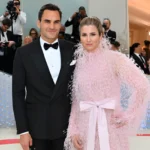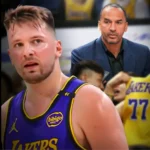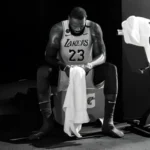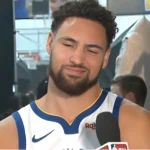

Olivia Rodrigo Ignites Buzz As David Byrne Shares Raw Backstage Truth
In the ever-swirling universe of pop music, Olivia Rodrigo has become something of a lightning rod — the kind of artist who can turn an ordinary festival slot into a full-blown cultural event. This year’s Governors Ball Music Festival in New York City was no different. When the chart-topping singer-songwriter brought out David Byrne, the legendary Talking Heads frontman, the internet practically set itself on fire.

Byrne, who is known for his sharp mind, quirky performance style, and decades of trailblazing in music, didn’t just show up to sing. He left the audience with a soundbite that’s still bouncing around social media feeds: “She seemed like a real person.”

That’s it. Seven simple words. But in the hyperconnected world of stan culture, that single sentence has been turned over, dissected, memed, and fought over — as if it were a prophecy.

The Unexpected Guest That Changed the Whole Set
Before the festival, nobody had “Olivia Rodrigo x David Byrne” on their collab bingo card. Rodrigo’s set was already slated to be one of the biggest of the weekend. Fans were packing the barricades hours in advance, holding handmade signs, wearing her album merch, and chanting her lyrics while the stage crew tested microphones.
Then, somewhere mid-set, Olivia dropped the kind of surprise that makes the crowd’s collective jaw hit the ground. Byrne walked out, looking effortlessly eccentric in his signature style, guitar in hand. No flashy fireworks, no over-the-top intro — just pure shock value.
From that moment, Governors Ball wasn’t just hosting another pop headliner. It was hosting a crossover event between two completely different worlds of music: Gen Z’s breakout superstar and one of rock’s most revered innovators.
When a Compliment Isn’t Just a Compliment
So, what did Byrne mean when he said Olivia “seemed like a real person”? The phrasing is unusual. It’s not the standard “She’s so talented” or “She’s a great performer” praise we hear in press rooms.
Some fans took it as the ultimate compliment — a nod to her authenticity in an industry often criticized for manufacturing personas. Others saw it as slightly cryptic, even shady. Why “seemed” and not “is”? Was Byrne subtly suggesting that other pop stars don’t feel “real”?
The ambiguity is part of why the quote blew up. Twitter threads ran wild. TikTok creators posted videos analyzing Byrne’s tone, his body language, even the micro-second pause before he said “real.” Instagram fan accounts flooded their grids with screengrabs and reaction memes.
In an era when a single sentence can dominate the conversation for days, this one became pure viral gold.
Olivia Rodrigo’s Public Image vs. Backstage Reality
Rodrigo’s appeal has always been wrapped in a kind of youthful sincerity. From the breakout smash “drivers license” to the razor-edged “good 4 u”, her songwriting blends heartbreak, angst, and unfiltered honesty. But she’s also been accused — unfairly or not — of being “too polished,” a pop industry darling who has her authenticity carefully curated by a PR team.
That’s why Byrne’s words landed like they did. The idea that a music veteran of his caliber would meet her, work with her, and then describe her as “real” suggests there’s more beneath the surface than skeptics think.
And in a landscape where relatability is currency, that’s huge.
Governors Ball Crowd Reacts in Real Time
It wasn’t just the quote that had fans talking. The live audience reaction was a spectacle in itself.
Phones shot up instantly when Byrne appeared, the crowd erupting into deafening screams. People who were halfway to the food trucks turned around and sprinted back. TikTok live streams from fans near the front quickly racked up thousands of viewers in minutes.
By the time the pair launched into their duet, the Governors Ball field looked like a sea of glowing screens — everyone desperate to capture their own angle of a moment they knew was going to be reposted everywhere.
The Performance That Broke the Algorithm
Clips of their performance didn’t just circulate — they dominated.
On YouTube, fan uploads of the full song racked up hundreds of thousands of views within 24 hours. On Twitter/X, the short video of Byrne delivering his “real person” line was viewed over a million times before the festival even wrapped up. Instagram reels featuring the moment were boosted by the platform’s AI recommendation engine, showing up in non-followers’ Explore tabs at lightning speed.
Even casual music listeners — the ones who might not own a single Olivia Rodrigo album — got swept into the buzz. It’s the classic ripple effect of internet culture: one viral moment turns into a week-long cultural talking point.
Why This Collab Was Genius Marketing
There’s an unspoken rule in pop music: collabs aren’t just about music, they’re about narrative.
By bringing Byrne on stage, Rodrigo instantly added layers to her brand story:
-
Cross-generational credibility — She’s not just a pop princess; she’s respected by icons.
-
Unexpected factor — Surprise is shareable, and shareable is marketable.
-
Mystery — The quote left unanswered questions, inviting speculation (and therefore more engagement).
In the cold, calculated world of PR strategy, this was a masterstroke. Even if Byrne’s appearance was purely organic, it worked like a campaign launch.
Fans Turn Detective Over a Single Sentence
The “real person” comment became a mini pop-culture mystery. Reddit threads filled with theories:
-
Maybe Byrne was contrasting Rodrigo’s demeanor with other festival headliners who felt “fake.”
-
Maybe it was a dig at the industry in general, packaged as a compliment.
-
Or maybe, as some fans suggested, Byrne just meant exactly what he said — no subtext at all.
But that’s the thing about celebrity culture in 2025: context doesn’t matter as much as conversation. Theories fuel clicks, and clicks fuel relevance.
Olivia’s Strategic Silence
Interestingly, Rodrigo herself hasn’t publicly addressed Byrne’s comment. She’s posted Governors Ball photos, a few cheeky captions, and behind-the-scenes videos, but nothing that directly references the quote.
In the entertainment world, silence can be louder than a statement. By letting fans run with their own interpretations, she’s essentially crowdsourcing her own PR campaign. Every theory, meme, and post keeps her name in the algorithm’s hot zone.
David Byrne’s Reputation for Unfiltered Honesty
Part of why the quote went so viral is because of who said it. Byrne is known for being blunt and avoiding the usual PR polish. He’s not someone you expect to deliver a vague, empty compliment. When he speaks, it’s often with a kind of detached wisdom — like he’s viewing pop culture from a completely different vantage point.
So when he calls someone “real,” fans assume it’s significant. And when he says they “seemed” real, it’s like dangling a shiny object in front of the internet’s collective curiosity.
Festival Culture Thrives on These Moments
In recent years, music festivals have evolved beyond music into content factories. A surprise guest, an off-script moment, or a viral quote can be worth more in marketing value than the entire setlist.
Governors Ball got exactly that with Olivia Rodrigo and David Byrne. And the festival’s official social channels wasted no time capitalizing — posting professional photos, slow-motion performance clips, and interview snippets to keep the hype alive.
The Lasting Impact on Olivia’s Brand
Even if Byrne’s words were offhand, they’re now part of Olivia Rodrigo’s story. In the months ahead, that quote will likely resurface in interviews, fan compilations, and maybe even late-night TV banter.
For an artist in her early twenties, stacking up these “cultural moments” is invaluable. Every headline, every meme, every viral clip adds to her mythos — not just as a singer, but as a figure people can’t stop talking about.
The Internet Never Forgets
The thing about viral quotes is that they become timestamped in pop culture. Years from now, when people search “Olivia Rodrigo Governors Ball,” Byrne’s comment will still be there, sitting in headlines, embedded in YouTube videos, and captioned in Instagram throwbacks.
It’s a reminder that in today’s music industry, what happens between songs can matter just as much as the songs themselves.


















